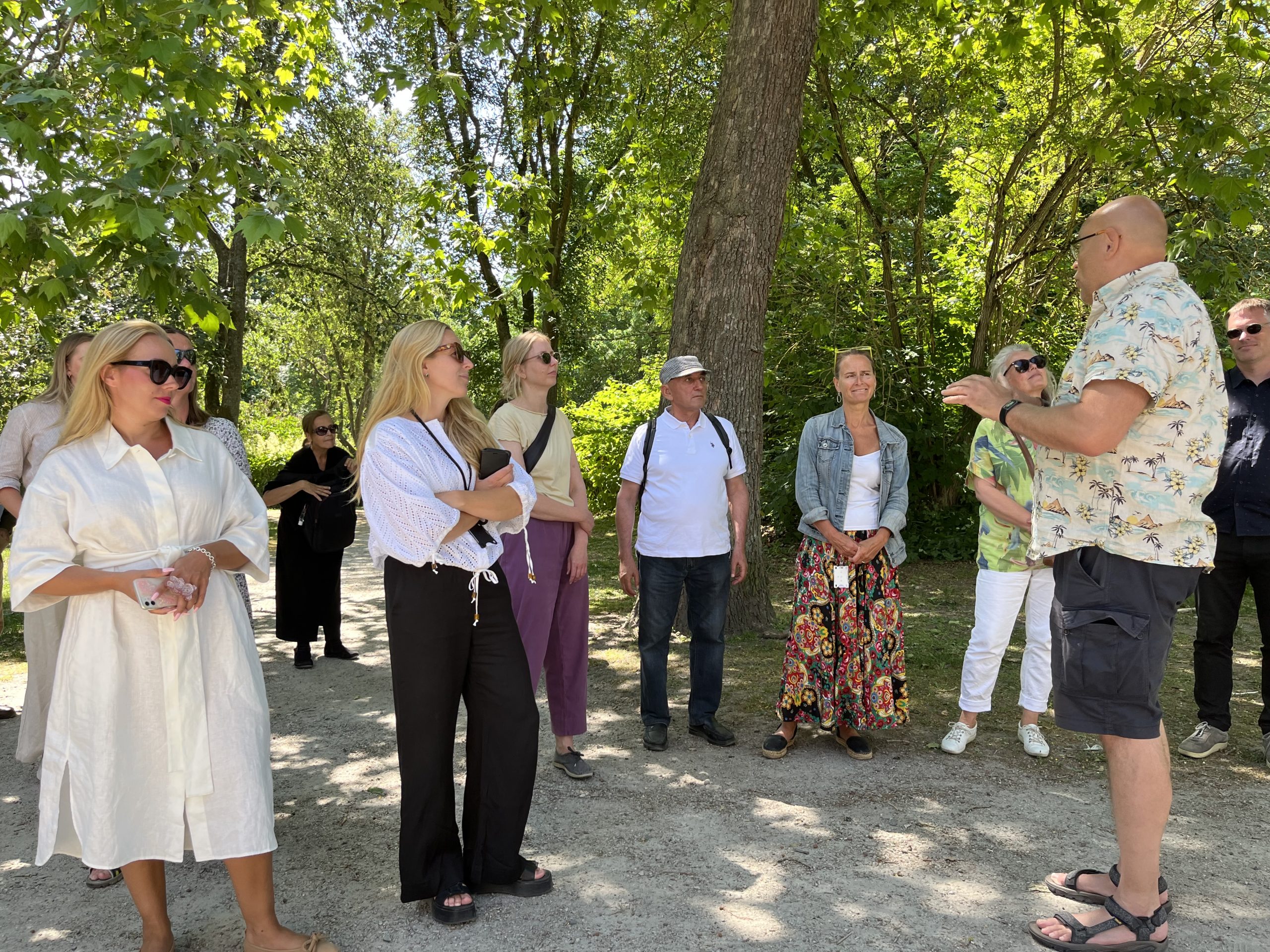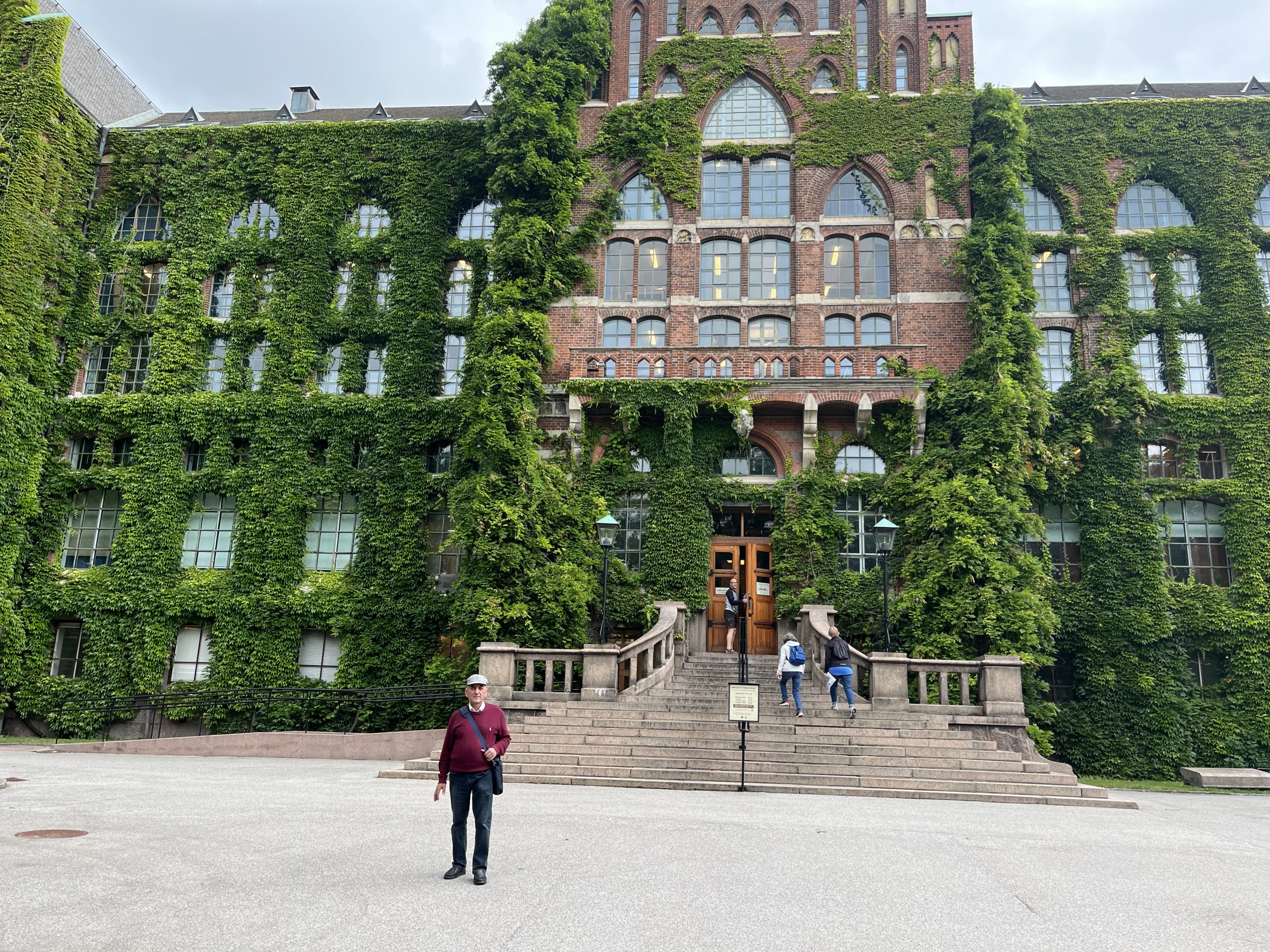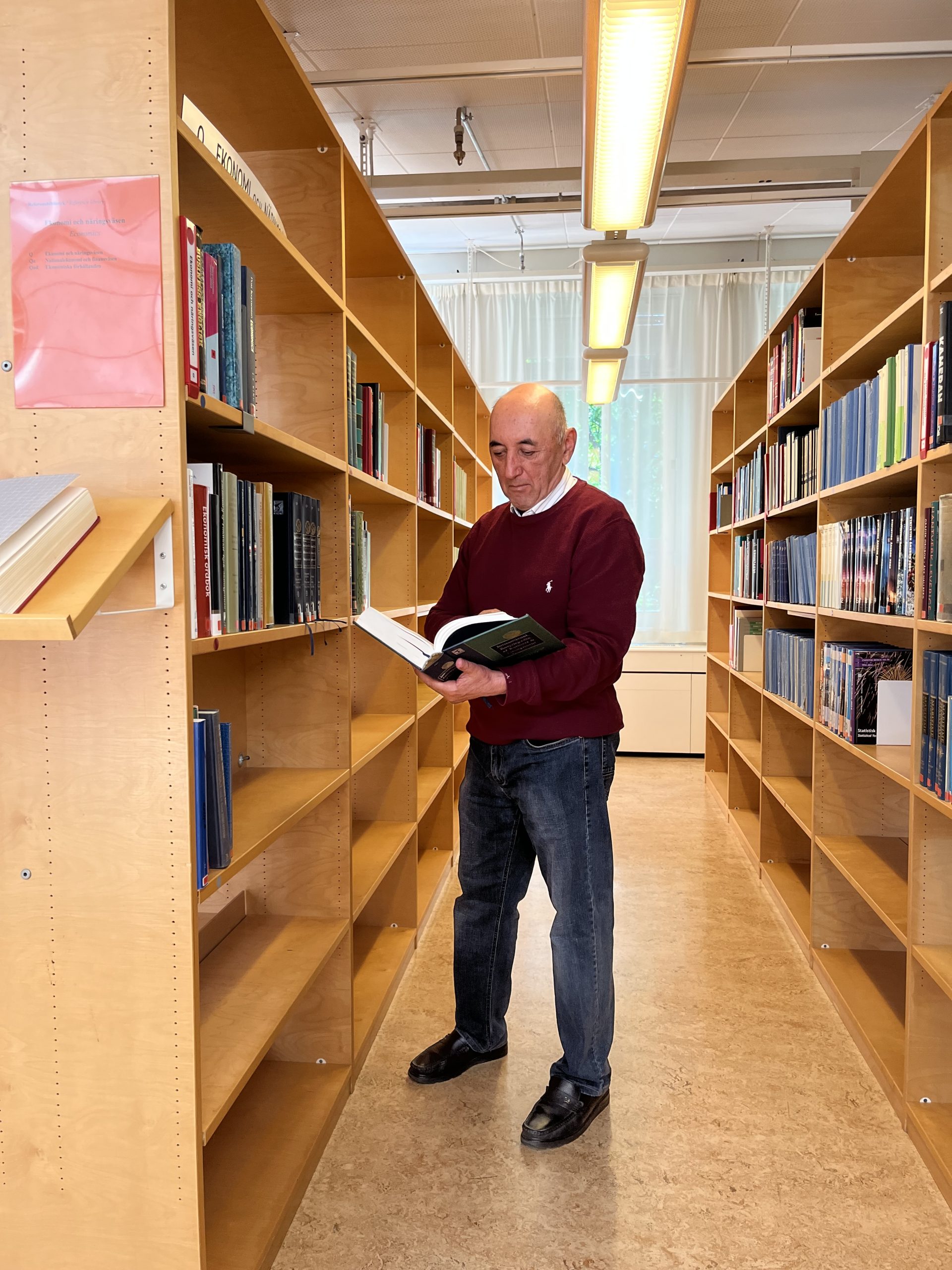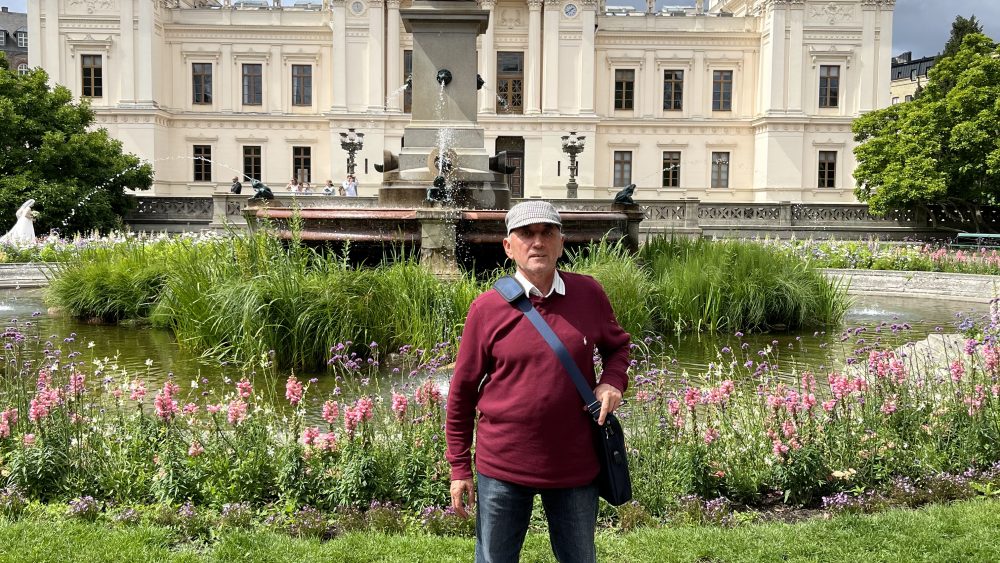by Ismatulloev I.U., guest researcher from Tajik State University of Commerce
Experience shows that mutually beneficial cooperation with other universities allows higher professional educational institutions to familiarize themselves with achievements and innovations, advanced technology and digitization in the field of education and training and promotion of scientific, research and innovative activities.
Since the beginning of 2023, the Tajik State University of Commerce has joined a new international project called MOCCA (“Multilevel Orders of Corruption in Central Asia”), financed by the HORIZON program of the European Union.
In the framework of this project, I spent my Secondment at Lund University in Sweden for 2 months – June and July 2023. During this period, I got acquainted with the social life, scientific and cultural environment of Lund town and research methodology at Lund University.
MOCCA is the first research and exchange program aimed at contributing to global and national efforts to understand and prevent corruption phenomena by conducting research and making recommendations.
It should be noted that the initial stage of my participation in the project began with a visit to Lund University. Spending time in Lund and getting to know the way of life of people and university staff who live here and the academic process served as practical and exemplary lessons for me that were directly related to the topic of my scientific research, “Development of Business Technology and Anti-Corruption Efforts”.
At the period of the Secondment, I have seen that the situation with measures against corruption phenomena would be improved if measures be taken to introduce and develop Contemporary Technologies in the framework of development and the impact of the business world. Such integration will simplify bureaucratic barriers at all levels, primarily in various sectors of the economy and social life.
I arrived in Lund from Munich, Germany, and travelled by train. After about 14-15 hours, we crossed the border of Germany to Denmark, and I found out that it was another hour to Lund, Sweden. Wherever the train stopped, I asked other people whether we had reached Lund. A passenger sitting in front of me looked at me after the next stop and said: “This is the city of Malmo, and the next stop is the same town of professors and scientists that you ask us every moment.”
Yes, the city of scientists and scholars was where I was coming, and during the other days of my journey, these words really came true. This is also due to the fact that in this town, which was built in 990, only one hundred and seven thousand people live today, and more than fifty per cent of them have relations to one of the oldest and most prestigious universities of Northern Europe or Scandinavia – the University of Lund, founded in 1666.
I was hosted by the Department of Sociology of Law. Representatives of the project employees of the Department of Sociology of Law warmly and cordially welcomed me and helped me get settled. Later, I had useful meetings and talks with representatives and experts of the project, professors and docents of the department and participated in events and campaigns of the Department of Sociology of Law of the Faculty of Social Sciences.

The town of Lund is located in the centre of the Skane region (Scandinavia comes from the word Skane), and being here, you feel like you are in the centre of Scandinavia. The University of Lund covers more than half of the town in ancient buildings built over many years, with its departments, faculties, libraries, and educational and research centres. A little later, I also had short trips to Denmark and Norway, due to which my impressions were formed in general about Scandinavia, and I was convinced by the opinions of experts that this region has one of the best socially oriented development systems in the world named as “Scandinavian model of development”.
What I have seen and observed during my Secondment were practical answers to my research questions that included three components in the process:
- Improvement of Understanding of Technology of Business
- Introduction of New Technology as a tool of the development of the different sectors of the economy that reduces the level of corruption
- Development of Digitalization at different levels and improvement of the use of Information Technology
The people in Scandinavia have made very useful use of modern innovative tools, digital technology and artificial intelligence, and they manage and use them so intelligently that everyone who comes here will be dumbfounded. I was deeply amazed by the introduction of new technology in this region. It seems that cash does not exist in this town, and it is not used anywhere. If you don’t have a special transport application installed on your phone or computer, you can’t even get on a bus or other types of public transport and have to walk behind the bus. And If you want to rent a car, don’t worry, everything is very simple: car-sharing services exist everywhere, in two minutes you can apply and rent a car, especially electric cars, which are very convenient and cheap in terms of temporary operation and fuel consumption.
In Denmark at Copenhagen Airport, almost 90 per cent of services are self-check-in and self-drop baggage.
In most stores, you buy and pick up yourself, and before exiting, you go to the computers and machines at the exit, count your purchased products, pay with a bank card, and only take the receipt from there to the exit gate, and it will open. It is true that in large stores with a large number of customers, one employee is always present and helps those who cannot do this in case of need, but every newcomer joins this group after some time.
On the same days and nights, I was in Scandinavia, the Government of Tajikistan issued an actual resolution. Based on the signed on 22nd of June Decree of the Leader of Nations, Founder of Peace and Unity, President of the Republic of Tajikistan, Mr Emomali Rahmon, “On measures to expand non-cash settlement”:
From August 1, 2023:
– payment of taxes, state fees for issuing permits and licenses, other mandatory payments to the budget, penalties, mandatory state insurance, medical services, communal services, other types of state services, as well as receipt of funds by ministries, departments and state organizations (hereinafter – pay services ) to be implemented in a non-cash way;
– it is prohibited to accept payments for pay services in cash by ministries and agencies, state organizations and financial credit organizations of the country.
The town of Lund is very clean and green; buildings, sidewalks and paths are covered with flowers and decorated with decorative trees and plants. Perhaps this is because the climate here is always cold and it rains more or less, even in the summer. Another interesting issue is people’s attitude towards emissions and landfills. According to the rules of this city, every resident here separates waste into six groups, collects them in six types of packages or bags (which can be obtained free of charge in stores) and sends them to landfills separately into six boxes (for example, glass containers separately, paper separately, disposes of plastic separately, etc.). According to information, in Sweden, they destroy only seven per cent of garbage, and the rest are reprocessed and produced from them.
Another impressive moment was visiting libraries. I visited both university and public libraries. The main impression from visiting public libraries was the fact that people with small children come here on weekends, and their young children grow up on the books, combining children’s games with familiarization with simple and illustrated books for children.

During the whole period of the secondment, I visited and had access to large and modern Lund University libraries, including the Central Library of the University, the Library of the Faculty of Social Sciences and the Library of the School of Economics and Management of Lund University. I made a review of the literature (the list is shown at the end) and learned the methodology of research and works already done by other researchers in the framework of MOCCA and other related projects.

And finally, when you walk down the street, at every step, you meet one or two people who are wearing sports clothes and running on the streets. In the middle or at one end of the yards, groups of young people, up to eight to ten people, do sports exercises (something like Aerobics or Pilates) without a coach. Residents of the town use bicycles a lot. The city is full of bicycles and bicyclists. There are bike parks in front of every office and building where people live and work. I was also suggested that if I hire a bike, it would be much easier. I jokingly answered, “I missed Tajikistan a lot, and I have to return to my home country very soon, and if I come again, I will definitely come with my bicycle”.
The list of publications used and reviewed:
- Corruption and Technology-Induced Private Sector Development [Elektronisk Resurs]. By Jean–Francois Ruhashyankiko. Washington, DC. International Monetary Fund, 2006
- Qualitative Research. A Guide to Design and Implementation. By Sharan B. Merriam. Published by Jossey-Bass/San Francisco, CA, 2009
- Qualitative Research. A Guide to Design and Implementation. By Sharan B. Merriam. Published by Jossey-Bass/San Francisco, CA, 2009
- Science, development, and sovereignty in the Arab world [Elektronisk Resurs]. By Zahlan A.B. Basingstoke: Palgrave Macmillan, 2012
- Open Government [Elektronisk Resurs] Opportunities and Challenges for Public Governance. Edited by Milla Gasko-Hernandes. New York, NY: Springer New York: Imprint: Springer, 2014
- International Encyclopedia of Business and Management, 2nd edition. Edited by Malcolm Warner. Volume 1/Second Edition. Pages: 656-728 (Business)
- International Encyclopedia of Business and Management, 2nd edition. Edited by Malcolm Warner. Volume 2/Second Edition. Pages: 1763-1770 (Entrepreneurship)
- Law, Society, and Corruption: Exploring (Anti-) Corruption From Interdisciplinary and Multilevel Perspectives. By Rustamjon Urinboev and Tolibjon Mustafoev. Research Report/Coursebook in Sociology of Law 2023:1
- Case Study Research/Design and Methods/Second Edition. By Robert K. Yin. Applied Social Research Methods Series/Volume 5. International Educational and Professional Publisher Thousand Oaks. London – New Deli, 1994 by SAGE Publications Inc.
- 9, Animals and the Politics of Suffering. Essay and Law, Care and Interspecies Relations. By Marie Leth–Espensen/Department of Sociology of Law/Lund University, 9th June 2023.
- Central Asian Law: Legal Cultures, Governance and Business Environment in Central Asia/ A collection of Papers from Central Asian Guest Researchers Seconded to Lund University.Edited by Rustamjon Urinboev/Research Report in Sociology and Law 2020-2.
- Social and Legal Norms. Toward a Socio-Legal Understanding of Normativity. Edited by Matthias Baier. Lund University, Sweden. 2013.
- Controlling Corruption; the Social Contract Approach / Bo Rothstein. Oxford. Oxford University Press, 2021
- Law of the Republic of Tajikistan on Entrepreneurship, Dushanbe, 1992.
- Constitution of the Republic of Tajikistan. Articles 12 and 32. Dushanbe. 1999.
- Law of the Republic of Tajikistan “On the protection and state support of entrepreneurship in the Republic of Tajikistan”. Dushanbe,2002.
- Law of the Republic of Tajikistan “On State Registration of Legal Entities and Individual Entrepreneurs”. Dushanbe, May 19, 2009.
- Law of the Republic of Tajikistan “On Resistance to Corruption”, August 7, 2020. No. 1714.
- The state strategy of combating corruption in the Republic of Tajikistan for the period up to 2030.

